Table of Contents
Home / Blog / Web Development
A Comprehensive Guide to Web Apps vs Website Development
October 7, 2025
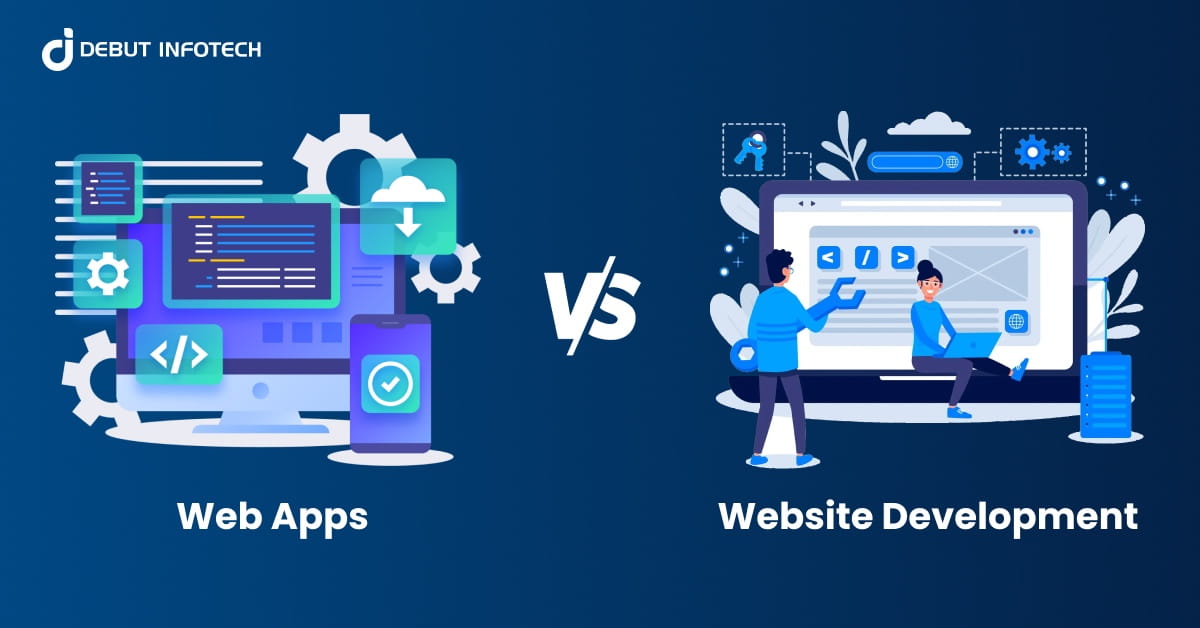
October 7, 2025
In today’s digital-first world, a major choice that businesses have to make when establishing their online presence is whether to use a web app or a website. This is achieved by first understanding the difference between Web App vs website development as a step towards matching the technology to the business goals. Both solutions are helpful but have various purposes and need different treatment regarding functionality, scalability, and the effort to develop.
Whether a startup wants to provide customers with interactive experiences or businesses are determined to find a solution that will sustain growth over the long term, making the right decision can save time and resources and enhance overall efficiency. The guide will outline the features, advantages, and disadvantages of each option, enabling organisations to proceed with confidence and understanding.
Ready to Build Smarter Digital Solutions?
Whether you need a feature-rich website or a powerful web app, our experts can design, develop, and scale it for your business.
What Is a Website?
A website is a digital space comprising interlinked web pages that can be accessed via a domain name. Its primary purpose is to deliver information through static pages or dynamic content that updates in real time. Websites are built to present data in a structured, easy-to-navigate format, making them ideal for users seeking knowledge, updates, or general company details.
Common examples include company landing pages introducing a brand, blogs publishing articles regularly, online stores showcasing product catalogs, and portfolio sites for professionals who want to highlight their work.
For businesses, websites are often the first step into the digital ecosystem, offering brand visibility and establishing credibility. They also provide basic user interaction, such as filling out contact forms, subscribing to newsletters, or browsing product listings. Because of their simplicity and cost-effectiveness, websites are widely adopted by startups, small businesses, and enterprises alike. In short, a website acts as your digital identity, helping customers find and learn about your business online.
Characteristics of a Good Website
A website serves as the online identity of a business, brand, or individual. To be effective, it should:
- Clear Purpose: Communicate the core message or value proposition.
- User-Friendly Navigation: Easy-to-use menus and logical structure.
- Mobile Responsiveness: Optimized layouts that adjust to screens of all sizes.
- Fast Loading Speed: Quick page load times for a better user experience and SEO.
- Strong Visual Design: Professional branding, visuals, and layout that match the audience’s expectations.
- SEO-Friendly: Content and structure optimized for search engines to attract organic traffic.
Types of Websites
Websites come in various forms depending on their purpose:
- Business Websites: Showcase company information, services, and contact details.
- E-commerce Websites: Enable online shopping and secure payment processing.
- Portfolio Websites: Highlight personal or professional work for freelancers, artists, or agencies.
- Blogs & News Portals: Share articles, updates, and resources.
- Educational Websites: Provide online learning, tutorials, or training materials.
- Community Forums & Social Platforms: Build discussions, networking, and engagement spaces.
Advantages of Websites
Websites remain essential for most businesses. Here are the key benefits:
- Accessibility: Anyone with a browser and an internet connection can access a site.
- Affordability: Basic ecommerce website development or corporate sites are relatively low-cost.
- Visibility: Websites are indexed by search engines, making them discoverable.
- Simplicity: Easy to design, launch, and update without extensive technical skills.
For companies starting small or focusing on visibility, investing in web development services to build a strong website makes perfect sense.
What Is a Web App?
A web app (or web application) goes beyond content delivery and focuses on functionality, interactivity, and user engagement. While a website is primarily informational, a web app behaves more like a desktop or mobile application, except it runs entirely in a web browser without installation.
Web apps are dynamic, meaning they respond to user input and often provide personalized experiences. They are designed for task completion, collaboration, and problem-solving, making them powerful tools for businesses and individuals.
Well-known examples include:
- Google Docs is a service that allows users to create and edit documents collaboratively in real time.
- Trello, which helps teams manage projects with boards, lists, and tasks.
- Slack is a communication app that runs seamlessly in browsers.
- Online banking platforms allow users to manage accounts and transactions securely.
If you’ve ever wondered, “What are web applications?” the answer is simple: they are interactive digital tools built to do more than just display information. Instead, they empower users to take action—sharing files, managing workflows, shopping, or even engaging in real-time chats. For businesses, web apps open up opportunities to provide richer experiences, stronger customer engagement, and higher productivity.
Characteristics of a Good Web App
A strong web application is more than just functional—it enhances user experience and supports business goals. Some key characteristics include:
- Interactivity: Offers dynamic user experiences with features like real-time updates, notifications, and user dashboards.
- Scalability: Can handle a growing user base and increased data without performance issues.
- Cross-Platform Compatibility: Works seamlessly across different browsers and devices.
- High Performance: Fast response times and smooth navigation for complex tasks.
- Data Security: Implements robust security measures like encryption, authentication, and compliance standards.
When Do You Need a Web App?
Web apps are the right choice when your project requires functionality beyond static content. Some common scenarios include:
- Real-Time Features: Live chats, collaborative editing, or instant notifications.
- User-Specific Dashboards: These are where users log in and interact with personalized data.
- Complex Transactions: E.g., financial applications, booking systems, or supply chain tracking.
- Frequent Updates: Platforms that need regular feature rollouts and improvements.
- Integration Needs: When the system must connect with APIs, third-party services, or other applications.
Advantages of Web Apps
Web apps, on the other hand, offer advanced functionality and deeper engagement.
- Interactivity: Users can edit, collaborate, and interact in real time.
- Scalability: Businesses can grow features as their user base expands.
- Cross-Platform Access: Works on any device with a browser—desktop, mobile, or tablet.
- Automation: Perfect for enterprises managing workflows, data, and reporting.
If your business requires a web application, working with a custom software development company ensures your web app aligns with your operations and customer expectations.
Web App vs Website: Key Differences
Understanding the difference between a website and a web application requires examining their purpose, interactivity, complexity, and functionality closely. While both run in browsers and are accessible online, they serve very different roles in the digital ecosystem.
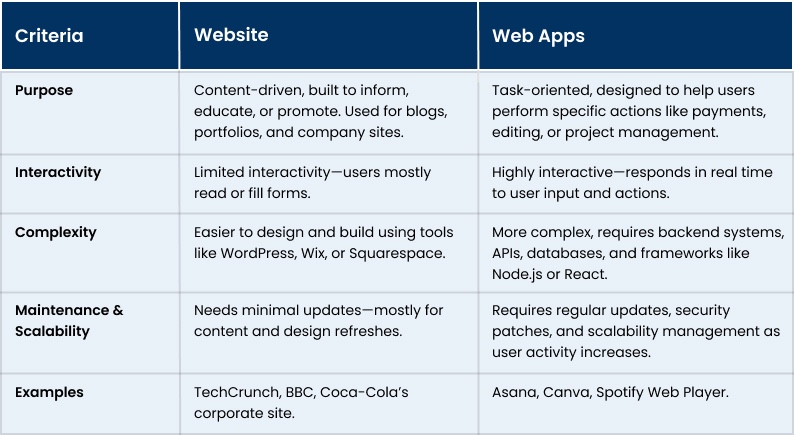
Web App vs Mobile App
When comparing a web app vs a mobile app, the primary difference lies in access and development:
- Web apps run in browsers and require no installation.
- Mobile Apps are installed via app stores and optimized for specific devices (iOS, Android).
- Cost: Web apps are often cheaper to develop and maintain than native mobile apps.
Web apps offer flexibility for businesses aiming to quickly reach users across multiple devices. However, for highly specialized use cases, a native app may still be the right choice.
Use Cases for Websites
Websites work best when the goal is to:
- Build a digital presence: Blogs, portfolios, and company sites.
- Sell online: Through ecommerce website development platforms.
- Provide information: News portals, nonprofit organizations, or educational hubs.
For visibility and accessibility, a website vs application debate often tips in favor of websites.
Use Cases for Web Apps
Web apps shine in industries where interactivity and real-time updates matter most:
- Finance: Online trading and investment dashboards.
- Collaboration Tools: Project management platforms like Trello or Jira.
- Healthcare: Patient record portals.
- Education: Interactive e-learning platforms.
- Retail: Personalized shopping experiences.
In these cases, partnering with a PWA development company or blockchain consultants (for secure finance/healthcare apps) is often crucial.
To better understand the difference between an app and a website, let’s look at some web app examples:
- Google Docs – Real-time document editing.
- Canva – Online design and graphics tool.
- Salesforce – CRM and enterprise-level data management.
- Netflix – Streaming platform with dynamic user engagement.
These examples highlight how web application services enable productivity and engagement beyond traditional websites.
Tech Stack and Development Costs in Web App vs Website Projects
When comparing web app vs. website development, the choice of technology and the overall cost structure play critical roles in shaping the final product. Both are interconnected—your tech stack influences the functionality, budget, and timeline required to complete the project.
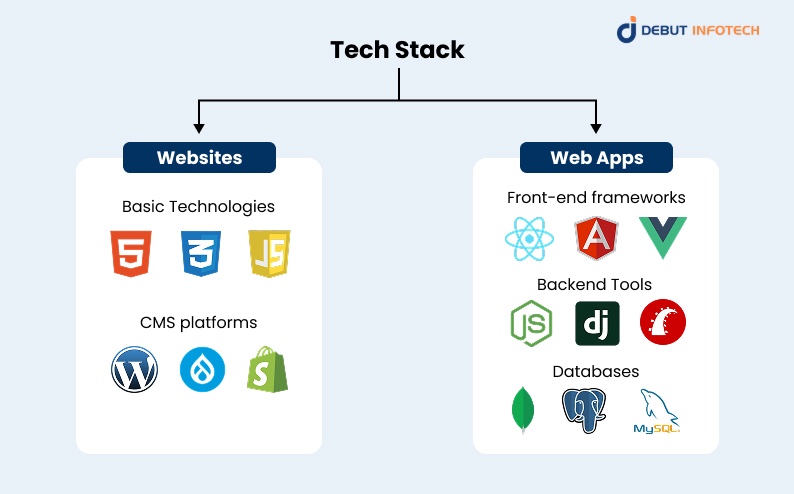
Tech Stack for Web Development
The tech stack depends on whether you’re building a simple website or a more complex web app:
- Websites: Built on HTML, CSS, and JavaScript, often supported by CMS platforms like WordPress, Drupal, or Shopify. These stacks make websites easier to deploy, update, and maintain.
- Web Apps: Require advanced tools like React, Angular, or Vue.js for front-end interactivity, paired with backend frameworks like Node.js, Python (Django/Flask), or Ruby on Rails. Databases like MongoDB, PostgreSQL, or MySQL manage data storage and retrieval.
Businesses can also accelerate delivery by leveraging rapid web application development tools or working with a PWA development company to create fast, scalable progressive web apps.
Development Costs and ROI Considerations
The web application development cost or website development cost is directly tied to complexity and scope:
- Basic Website: $3,000–$15,000 for design and content-focused builds.
- E-commerce Website Development: $10,000–$50,000+, depending on payment systems and custom features.
- Web App: $20,000–$250,000+ depending on integrations, scalability, and interactivity.
Hiring a dedicated software development team ensures efficiency and scalability but comes with higher upfront expenses. Businesses must carefully weigh the long-term ROI. While a website is cost-effective for visibility, a web app often delivers greater automation, customer engagement, and revenue potential.
The Future of Web Development: Blending Sites and Apps
The distinction between websites and web applications is diminishing as technology advances. Traditionally, websites served as static information sources while web apps provided dynamic functionalities. However, modern businesses increasingly integrate both forms into hybrid models that leverage their strengths. For instance, e-commerce platforms exemplify this blend, featuring content-rich landing pages for SEO alongside interactive elements like shopping carts and personalized dashboards that function as web applications. Similarly, Software as a Service (SaaS) platforms utilize marketing websites for lead generation but engage users primarily through specialized web apps.
The emergence of progressive web applications (PWAs) is further blurring these lines, merging websites’ discoverability with app-like functionalities, such as offline access and push notifications. This evolution allows businesses to harmonize websites and web apps, enhancing reach, engagement, and operational efficiency.
Looking forward, this integration promises to redefine web development, enabling organizations to create seamless user experiences that transition from brand discovery to interactive and productive environments. This strategy secures a competitive edge and aligns with user expectations for integrated information and functionality within a singular digital experience.
Enterprises should hire web developers to ensure compliance with and security best practices
Role of Debut Infotech in Web App vs Website Development
Debut Infotech is a trusted web development company that helps organizations navigate the website vs. web application decision. Whether you need custom software development, an ecommerce website, or a scalable business web application, Debut Infotech offers:
- Dedicated software development teams for full-cycle projects.
- Expertise in rapid web application development tools and PWA development.
- Cost-efficient strategies for managing web application development costs.
- Tailored solutions aligning with your business goals and industry best practices.
By choosing Debut Infotech, companies can access web development services prioritizing scalability, innovation, and user engagement.
Ready to Turn Ideas Into Impact?
From engaging websites to dynamic web applications, we help you choose the right solution to boost growth and user experience.
Conclusion
The difference between a website and an app is more than technical—it’s strategic. Websites excel at visibility and accessibility, while web apps power interactivity, automation, and scalability. Businesses must weigh goals, user needs, and budgets before deciding on web app vs. website development.
In a digital environment where users demand both information and interaction, the smartest companies combine websites and apps for a balanced strategy. Partnering with a trusted web development company like Debut Infotech ensures that your investment delivers measurable results through a simple site or a powerful web app.
Frequently Asked Questions
A. The simplest way to think about it is that a website informs, while a web app performs. Websites mainly focus on delivering information, like blogs or news portals. At the same time, web apps are designed to let users take action, such as managing projects, shopping online, or using banking platforms.
A. A web app makes sense when your goal goes beyond just sharing information. Investing in a web app is smarter if your users need interactive features like dashboards, payments, or real-time collaboration.
A. Yes, websites cost less. A simple website might start at just a few thousand dollars, while a feature-rich web app can run into the hundreds of thousands. The cost difference comes from the complexity and backend systems required for apps.
A. Absolutely. Many businesses start with a website and later expand into a web app as their audience grows. This usually involves adding new technologies and backend functionality, so working with an experienced web development company or dedicated software development team is essential.
A. Not exactly. Websites are often built using HTML, CSS, and JavaScript with CMS tools like WordPress, while web apps rely on advanced frameworks such as React, Angular, or Vue, along with backend solutions like Node.js or Python. The tech stack for a web app is more complex and geared toward interactivity.
A. It depends on the scale of your business. Small stores can thrive on an e-commerce website with basic shopping features. However, a web app will provide the edge if you want personalized recommendations, advanced inventory tracking, or mobile-like user experiences.
A. Start by asking: What do my users need? A website is enough if your main goal is to build awareness and share content. However, a web app is a better long-term investment if you want users to engage, interact, or perform tasks online actively.
Our Latest Insights
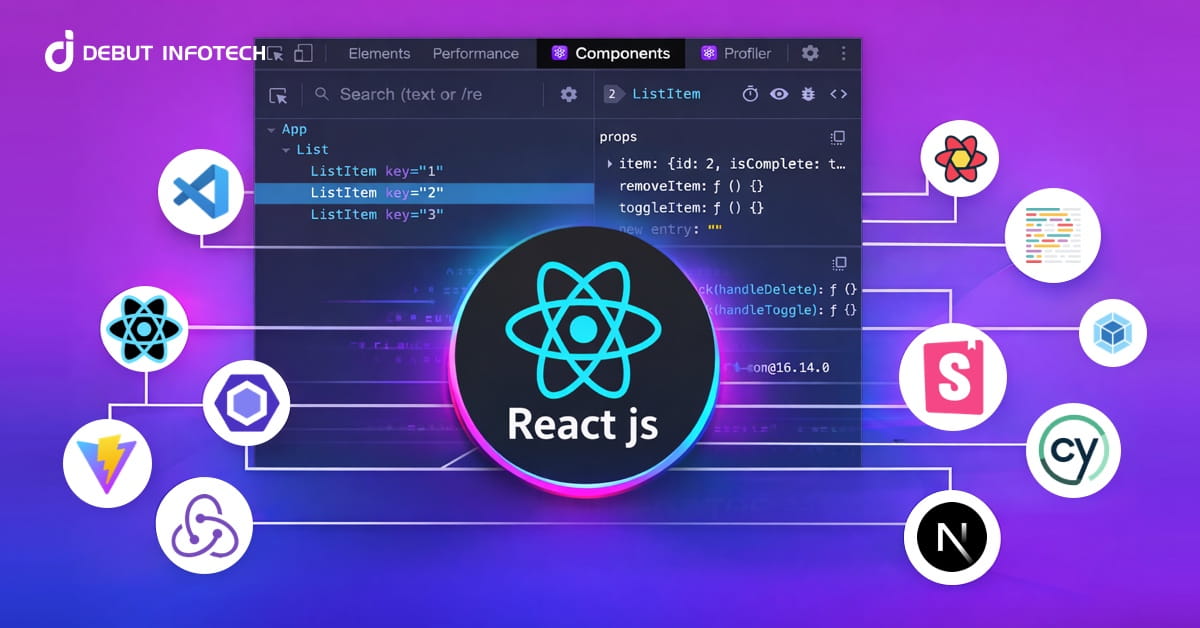
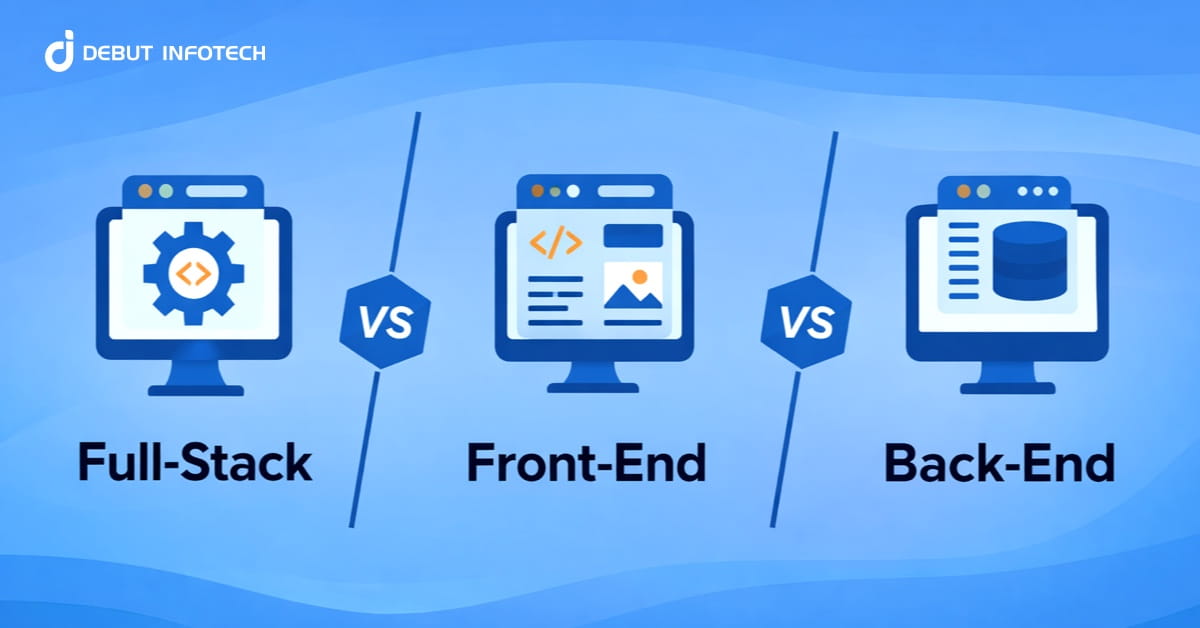
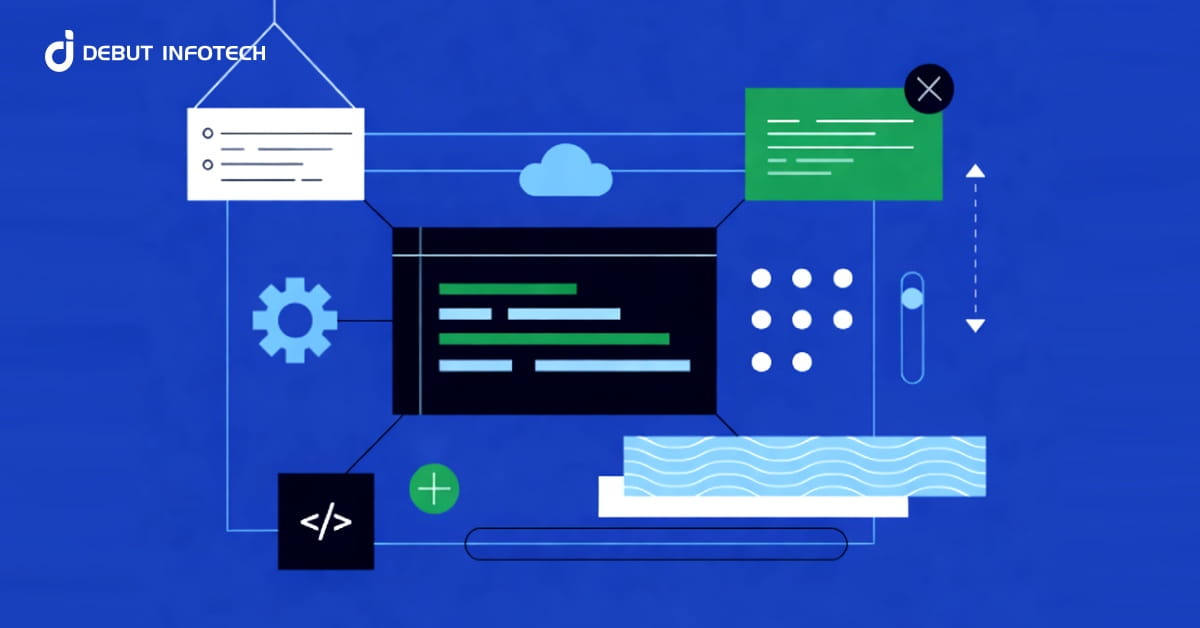
Leave a Comment